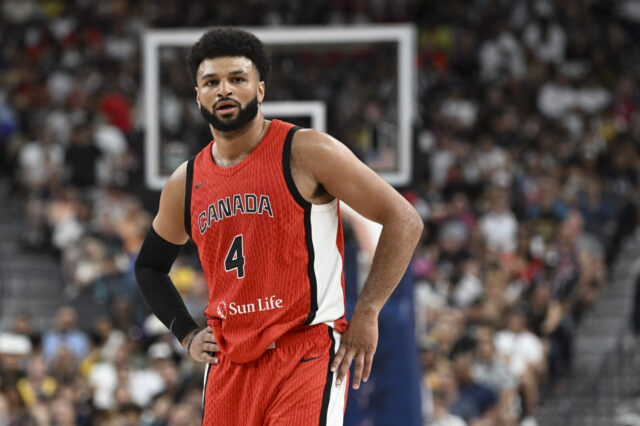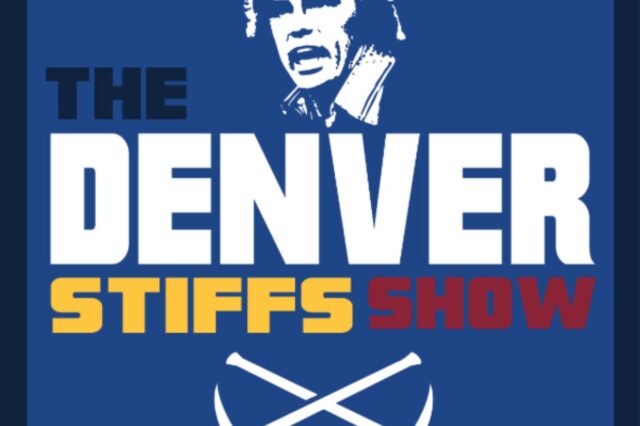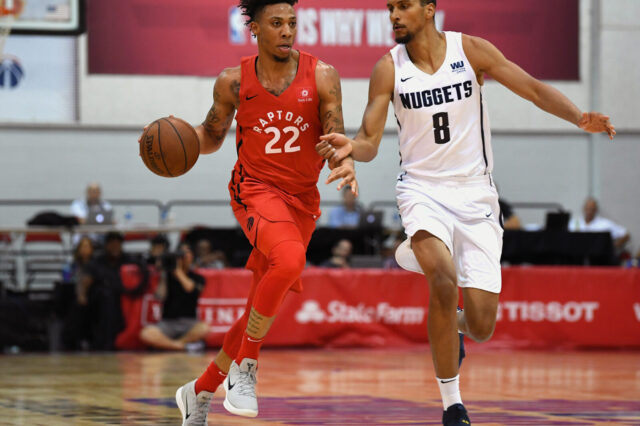By just about any measure, Nate Robinson's NBA career should be commended and not criticized.
Listed at only 5'9" (but perhaps even shorter than that in reality), Robinson has had an incredibly productive NBA career for any player, regardless of height. In over eight seasons as a pro, Robinson has averaged over 11 points per game despite playing just 23 minutes per night. Were Robinson to play 36 minutes a night, he would have a career average of nearly 18 points per game. And even though Robinson has been both traded and waived at different times in his career, there has always been a team ready to sign him up.
In the 2013 playoffs alone, Robinson was instrumental in leading the Chicago Bulls (the Nuggets‘ Thursday night opponent) to a first round upset over the favored Brooklyn Nets and also guided the Bulls to a first game, second round upset in Miami with a 27-point, 9-assist outburst against the Heat.
And yet, the Bulls didn't re-sign Robinson this past off-season (more likely due to a logjam at point guard in Chicago and the Bulls being capped-out, but still …) and instead Denver did, making the Nuggets Robinson's sixth NBA stop in those eight seasons.
Which brings up an inevitable question that seems to have dogged Robinson for years: why has such a productive player bounced around so many times in such a short period of time?
With only a 10-game sample set, it's unclear exactly what the answer to that question is. But 10 games into his Nuggets career – a stretch that has seen Robinson shoot just 34.2% from the field on over 7 field goal attempts per game while boasting a disappointing 2-to-1 assist-to-turnover ratio – Robinson seems to be hurting the Nuggets more than he's helping them. On four occasions thus far, we've had to suffer through an 0-5, 2-9, 1-8 and 3-10 shooting night from Robinson. And with Robinson averaging less points per game (6.9) than field goal attempts (7.3) it's a sure sign of a highly inefficient player.
Hoping Robinson would be the Nuggets second coming of the “one-man comeback” that we had here in J.R. Smith from 2006 through 2011, Robinson is instead eerily reminding Nuggets fans of another productive but not particularly efficient small guard who played in the Mile High City from 2003 through 2007: Earl Boykins.
Like Robinson, the fact that Boykins played off and on in the NBA for nearly 13 seasons is nothing short of remarkable. Despite being listed at just 5'5" and weighing only 135 pounds, Boykins never had a problem making shots for the 10 teams he played for. While in Denver, Boykins averaged over 12 points per game. Nothing to sneer at. But regrettably, Boykins' 12 points per night came on over 10 field goal attempts per game and he shot just 41.4% from the field while wearing the powder blue and gold uniform. In other words, Boykins was a highly inefficient player like Robinson has been thus far this season. More simply put, it seemed as though whenever Boykins touched the ball a Boykins' shot attempt soon after followed – something we've also been seeing from Robinson.
In fairness to both Robinson and Boykins, their coaches (including Robinson's current coach, it seems) have historically encouraged them to come into games for the purposes of an offensive injection – i.e. "shoot the ball!" But when scoring comes at such an inefficient expense, combined with them being liabilities defensively, does it really help the team?
For whatever reason, Denver has had a long history of small-ish guards that appear productive but in reality are quite inefficient. During the latter part of the Boykins’ era, the 6’0 (but really more like 5’10”) Allen Iverson famously took a lot of shots to get his points. As a Nugget, Iverson averaged an impressive 25.6 ppg but it took him 18.8 shots per night to get there (that was actually good by Iverson’s career standards from an efficiency perspective). But Iverson also contributed over 7 assists and nearly 2 steals per game during his Denver tenure.
Prior to Iverson, the best Nuggets small guard was Mahmoud Abdul-Rauf. Listed at 6’1″ but probably closer to 5’10”, the often times thrilling Abdul-Rauf needed nearly 15 field goal attempts as a Nugget to get his 16 ppg and he had a nearly 2-to-1 assist-to-turnover ratio in the process. A huge defensive liability, Abdul-Rauf was yanked frequently in the 1994 playoffs in favor of another small-ish guard, Robert Pack, who was an expert at plucking opposing guards’ pockets.
And just before Abdul-Rauf arrived in Denver (as Chris Jackson, of course), the Nuggets small guard spot was taken by Michael Adams. Only 5'10", Adams once scored 26.5 ppg as a Nugget playing in Paul Westhead's "one second or less" offense. But those 26.5 ppg came on a dreadful 39.4% field goal percentage and Adams chucked 21.5 shots a game to get there. Yikes!
(And any column about small Nuggets guards has to mention the 5'7" Monte Towe who played alongside his college buddy David Thompson here in Denver from 1975 to 1977. But Towe only saw eight-and-a-half minutes per game during his short stint as a Nugget.)
With only an eighth of the 2013-14 Nuggets season completed, it’s way too early to call the Robinson acquisition a failure by any means. And Robinson has been a contributor on some big time playoff teams, notably the NBA Finalist Boston Celtics in 2010 and last season’s Bulls, so maybe he can lend some veteran wisdom to this Nuggets squad just hoping to make the playoffs right now.
But having seen the likes of Robinson here in Denver before, I’m skeptical about how much he helps the team. He’s an odd fit paired with the 5’11” Ty Lawson (who’s own efficiency rating is a sky high 23.6 through 8 games), just as the 5’5″ Boykins was an odd fit next to Iverson … a pairing former Nuggets head coach George Karl – a small guard himself – just couldn’t resist trying out from time to time.
Given Robinson's diminutive stature, one can only hope that he improves quickly as a Nugget and helps deliver some wins. Because if he doesn't, NBA stop number seven could be coming up before the trade deadline.


